How to Fix ‘Steam Auth Timeout’ Error in Rust?
When the “Steam Auth Timeout” error occurs in Rust, it typically results in players being unable to connect to or being disconnected from game servers. This error indicates a failure in the authentication process between the Rust client and Steam’s servers. The most common cause of this issue is connectivity problems between the player’s network and Steam servers, often due to server maintenance or outages.
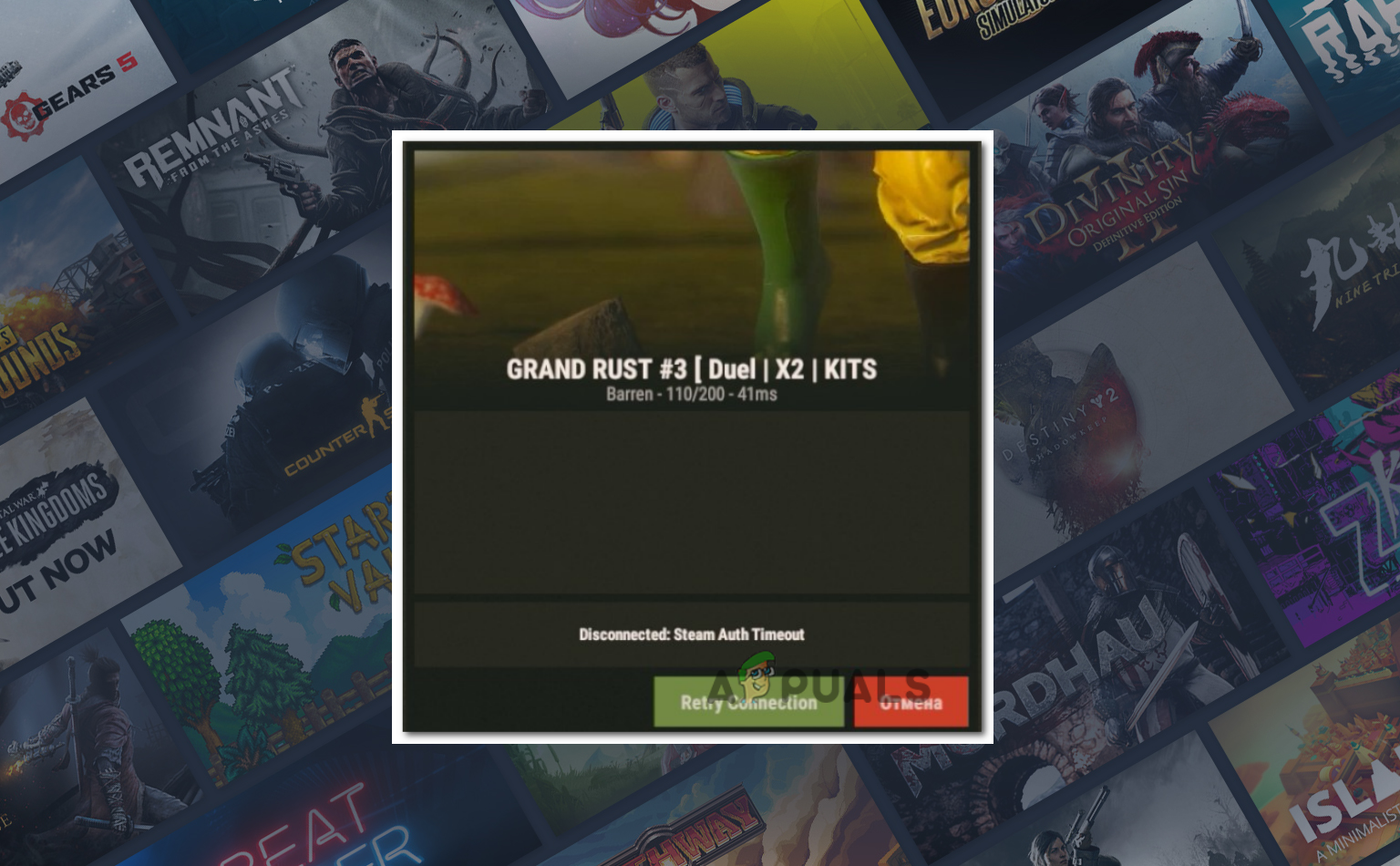
Additional causes can include issues with local network settings, corrupted game files, or problems with Steam itself. To troubleshoot, players should first check the status of Steam and Rust servers, then verify the integrity of game files, and ensure their network connection is stable.
This technical glitch, affecting PC users running the game via Steam, appears in various forms, often linked to issues with the Steam platform itself.
1. Investigate for a Server Issue
Investigate for a server issue to determine if the error is due to server-side problems. If servers are down or experiencing issues, client-side fixes will be ineffective until the service provider resolves the server issue.
Check the current status of Steam using the third-party website SteamStat.us, which will inform you of any Steam server malfunctions in your region that could disrupt Rust’s online functionality.
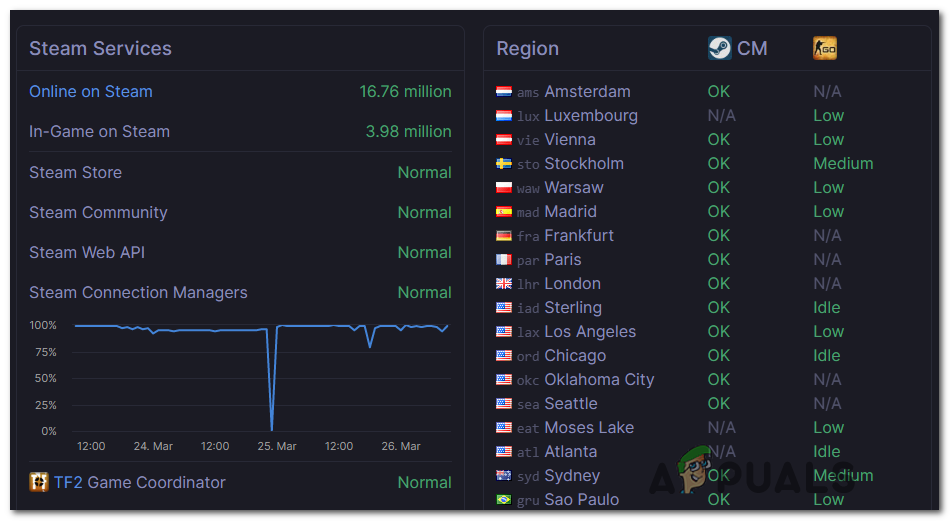
If Steam’s status checks out, proceed to inspect Rust’s megaservers for issues using platforms such as DownDetector or Outage.Report.
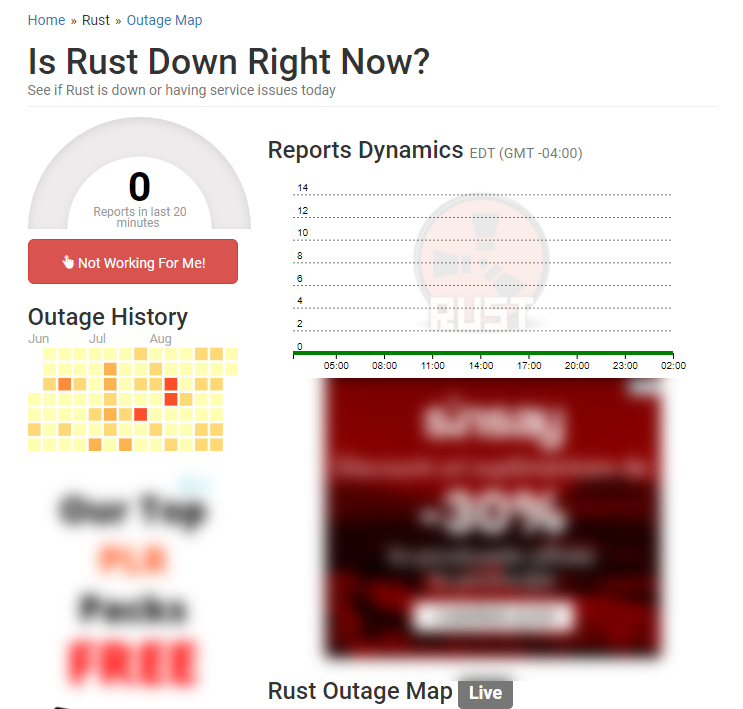
Note: If your investigations uncover a server issue, the matter is out of your hands. The only recourse is to wait until the developer resolves the problem.
No server problems detected? Proceed with the following troubleshooting methods.
2. Opt Out of Steam Beta
Opting out of Steam Beta can resolve the error because Beta versions of software are used for testing new features and may not always be stable. These Beta channels might have compatibility issues with certain games, including Rust.
By opting out, you revert to the stable release of Steam, which is less likely to have conflicts or bugs that could lead to connection timeouts in your game.
- Open your Steam client and use the menu bar at the top to click on Steam, then choose Settings.
- In the Settings menu, select the Account tab on the left, then proceed to the right and click on Change under Beta participation.
- Next, use the drop-down menu (under Beta participation) to select None – Opt out of all beta programs.
- Restart Steam, re-subscribe to any necessary mods, launch Rust, and verify if the error is resolved.
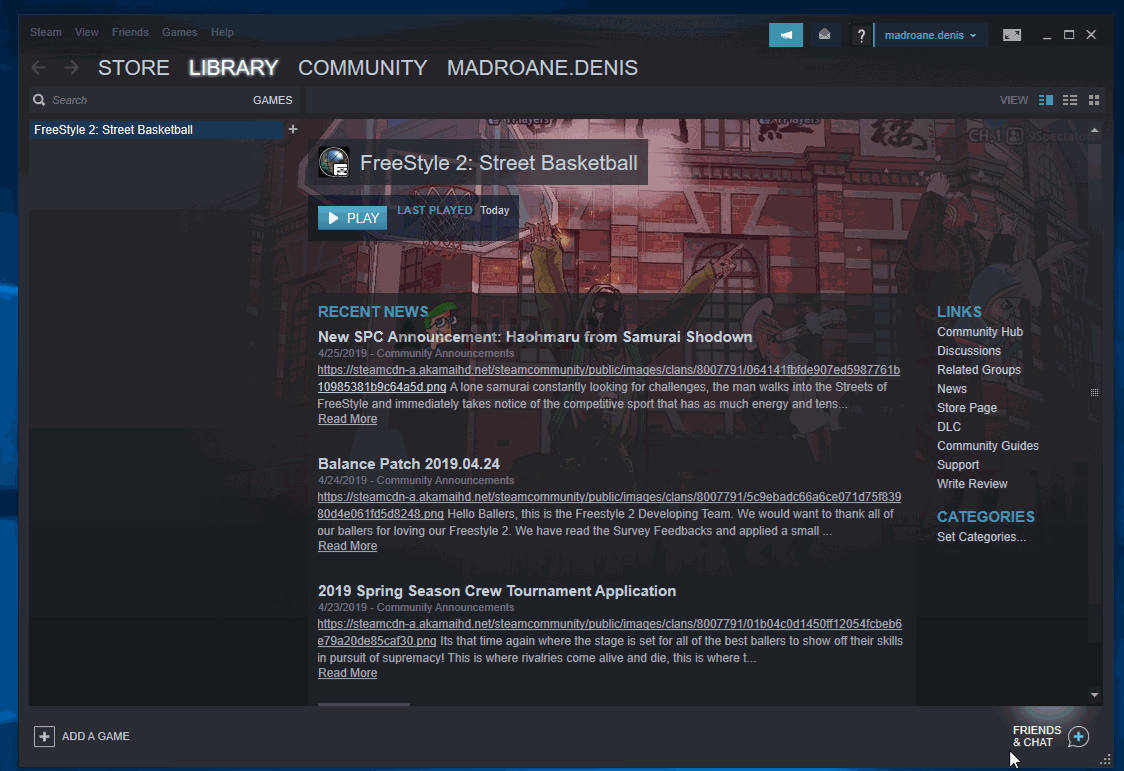
Discontinuing Beta participation
If the ‘Steam Auth Timeout‘ error persists even after exiting all Beta channels, move to the next potential fix.
3. Verify the Integrity of Game Files
Verifying the integrity of game files is a process that checks for any missing or corrupted files within your game’s installation. The Steam client compares your local game files to the latest versions stored on Steam’s servers and automatically replaces any faulty or incomplete files with the correct versions.
This ensures that your game is up-to-date and functioning correctly, potentially resolving issues like the ‘Steam Auth Timeout’ error.
- Open your Steam menu and click on the Library tab.
- Inside the Library, right-click on Rust and select Properties from the context menu.
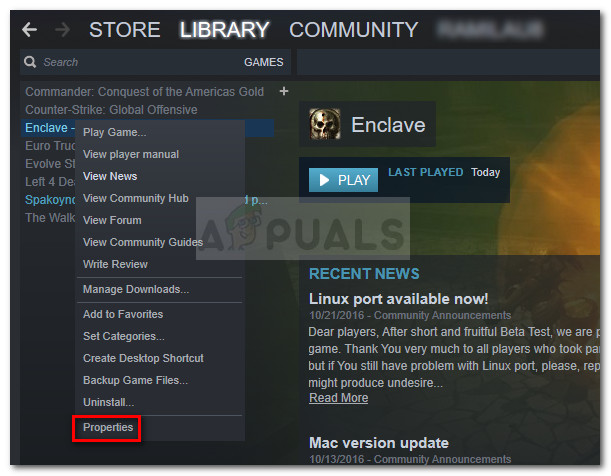
Inside the Library: Right-click on the game and choose Properties - In the Properties screen, click on the Local Files tab, then click on Verify Integrity of Game Files.
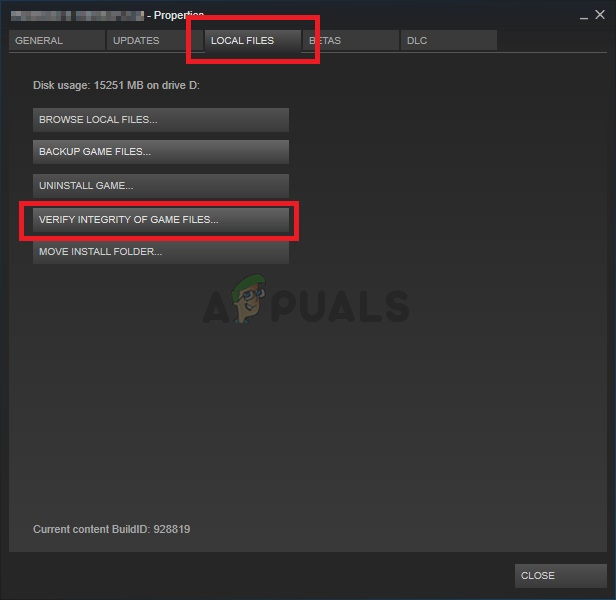
Verifying the integrity of game files - Confirm the operation at the prompt and wait for completion. Then, launch Rust once more to see if the issue is resolved.
If a game file integrity check uncovers no problems, proceed to the next fix.
4. Repair the Easy Anti-Cheat Engine
Repairing the Easy Anti-Cheat Engine can resolve the error because this tool is essential for preventing cheating in online games. If corrupted or malfunctioning, the Anti-Cheat engine may incorrectly flag your gaming session, resulting in disconnections or errors like the one mentioned.
By running the repair procedure, you ensure that the engine’s files are in good working order, eliminating any false triggers that could cause the game to kick you out.
- Navigate to Rust’s installation folder in File Explorer. The default path is usually:
C:\Program Files (x86)\Steam\steamapps\common\Rust
- In the installation folder, double-click on EasyAntiCheat, right-click on EasyAntiCheat_Setup.exe, and choose Run as Administrator.
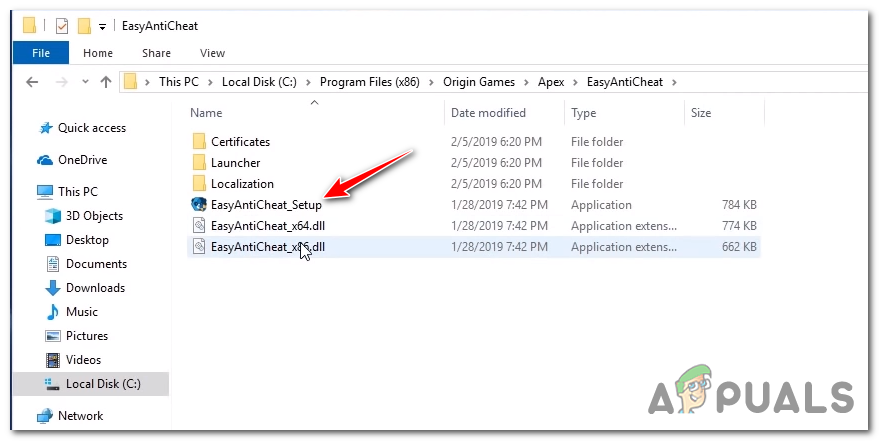
Executing EasyAntiCheat as administrator Note: Confirm admin access if prompted by UAC.
- At the Easy Anti Cheat engine’s initial screen, click on Repair service and confirm at the following screen.
- Wait for the repair process to complete. When finished, start Rust, join an online game, and check for the error.
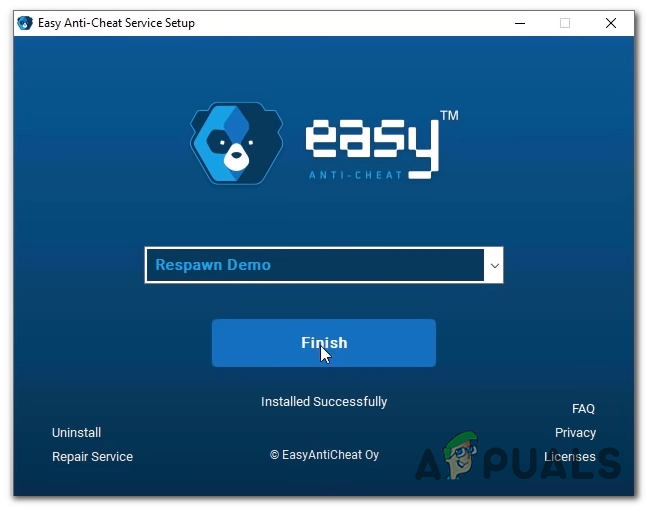
If you continue to experience ‘Steam Auth Timeout‘ errors, explore the next suggested solution.
5. Clearing the Download Cache
Clearing the Download Cache in Steam can resolve issues because it removes temporary files that may have become corrupt or are causing conflicts with game updates or installations. When the cache is cleared, Steam will fetch fresh copies of the needed files, which can eliminate problems related to outdated or damaged data. This can improve the game’s stability and performance.
- Open the Steam client.
- Click on Steam in the menu bar, then select Settings.
- In Settings, choose the Downloads tab on the left side.
- Click on Clear Download Cache at the bottom of the window.
- Click Yes at the prompt to confirm cache clearing.
- Once cleared, log back into Steam, restart Rust, and check if the issue has been resolved.
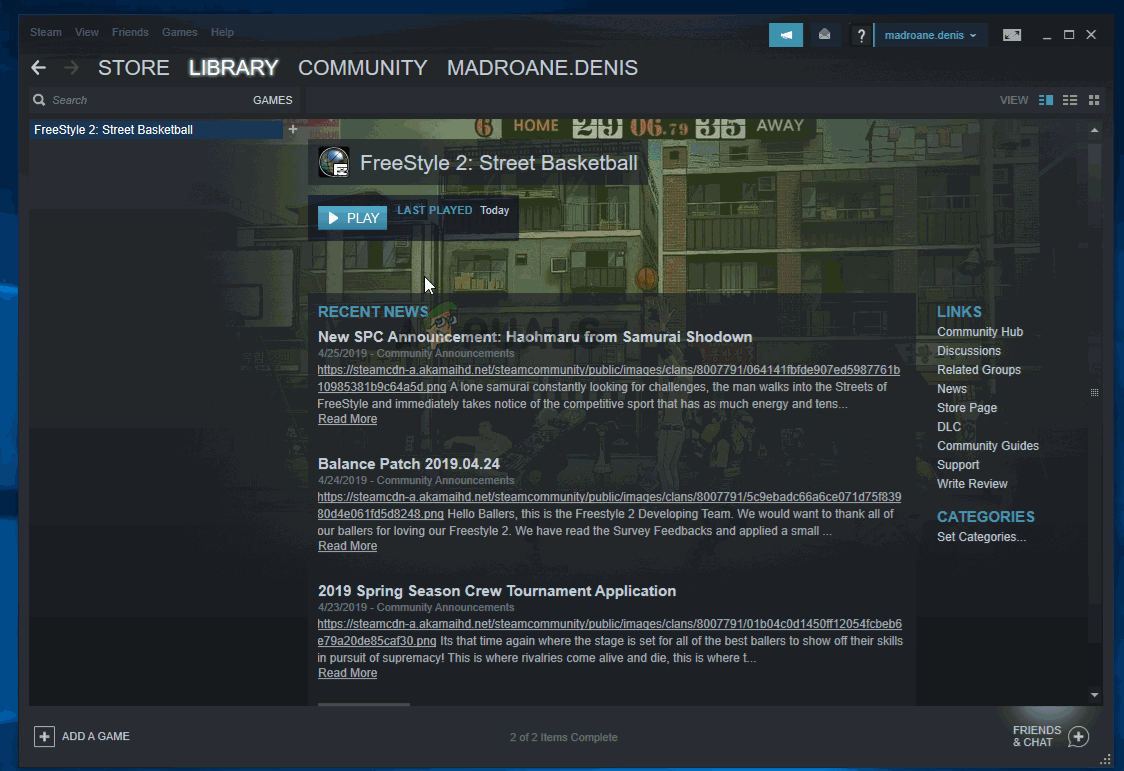
Purging Steam’s Download Cache
Continue to the final method if the issue still persists.
6. Reinstalling Steam & Rust
Reinstalling Steam and Rust can resolve the problem by completely removing and then freshly installing the software, clearing any corruption or conflicts in the process. This action effectively resets both the game and the launcher to their original state, eliminating any issues that might have been caused by damaged files, outdated data, or improper configurations during their initial installation or subsequent updates.
By starting over, the integrity of the game and the Steam client is restored, which can often resolve persistent errors.
- Press Windows key + R, type ‘appwiz.cpl’, and hit Enter to open the Programs and Features window.
- Locate Steam in the application list, right-click on it, and choose Uninstall. Confirm the operation when prompted by UAC.
- After uninstalling Steam, repeat the process with Rust.
- Restart your computer after both uninstallations are complete.
- Upon reboot, download the latest Steam client from the official download page and install it.
- Reinstall Rust using the newly installed Steam client, then start the game to see if the issue has been resolved.
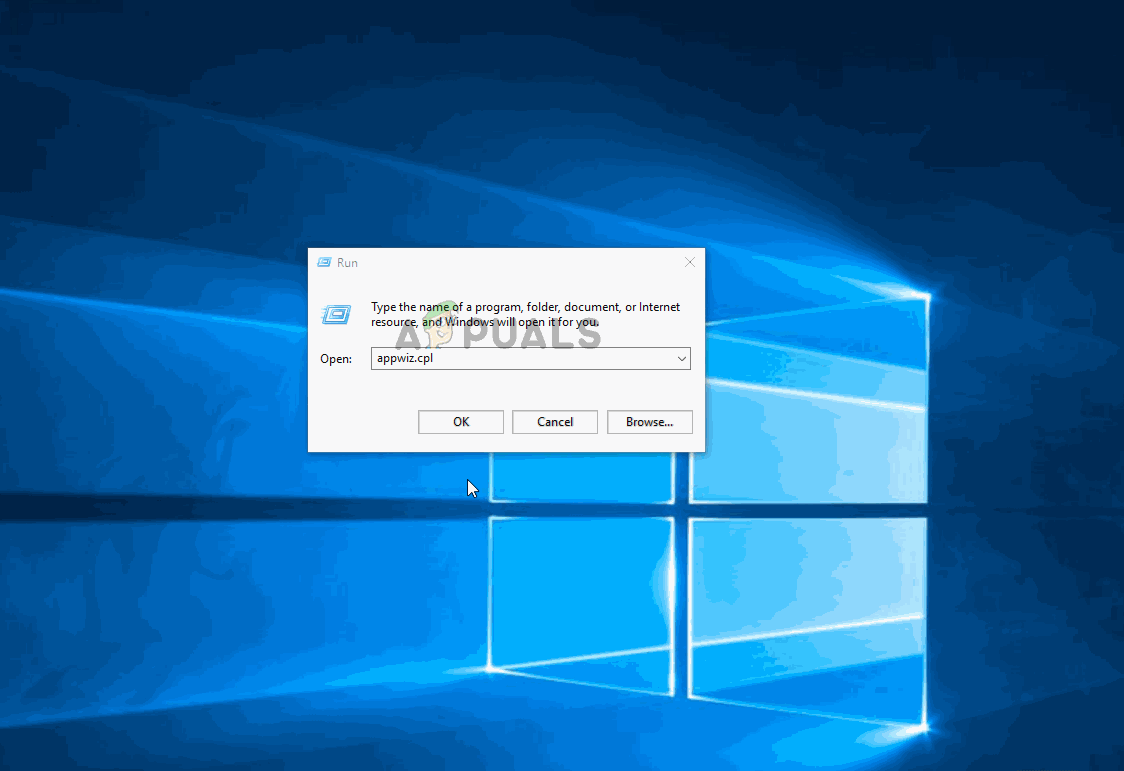
Reinstalling the Steam client





